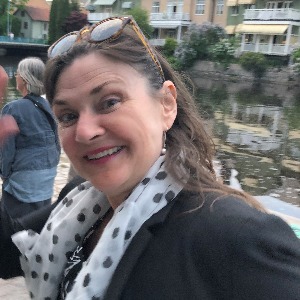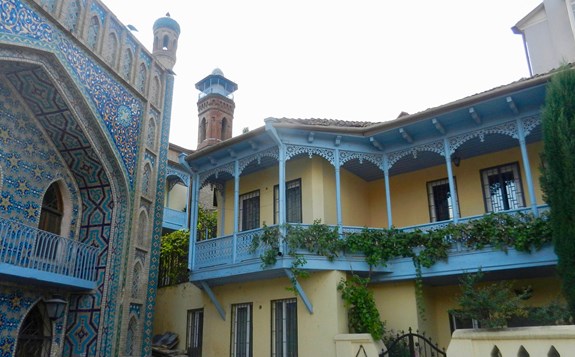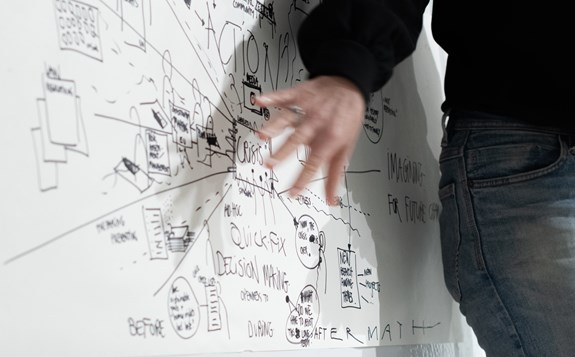We use cookies on this website. Cookies help us deliver the best experience on our website. Read about cookies.
-
- Education
- Education
- Programmes and courses
- Applications and admissions
- Tuition fees
- Scholarships
- Exchange studies at Malmö University
- Study Guidance
-
- After admission
- After admission
- Moving to Malmö
- Pre-orientation
- Arrival guide
-
- About studies at Malmö University
- About studies at Malmö University
- Why choose Malmö University
- Understanding university studies
- Connect with our students
On the page -
- Research
- Research
-
- Doctoral studies
- Doctoral studies
- Doctoral courses
-
- Doctoral schools
- Doctoral schools
- Adaptation of urban space through sustainable regeneration
- ComBine
- Culturally Empowering Education through Language and Literature
- Education, Learning and Globalisation
- Finding ways in a time of great future challenges (FinnFram)
- Swedish National Graduate School in Science and Technology Education Research
- Learning in Multicultural Societal Contexts
- Pedagogy and Vocational Skills
- Relevancing Mathematics and Science Education (RelMaS)
- Sustainable Movement Education
- The National Research School for Professionals in Social Services
- Research subjects
-
- Research centres
- Research centres
- Biofilms Research Centre for Biointerfaces
- Citizen Health
- Imagining and Co-Creating Futures
- Institute for Urban Research
- Malmö Institute for Migration Studies
- Literacy and Inclusive Teaching
- Centre for Work Life Studies
- Sustainable Digitalisation Research Centre
- Centre for Sexology and Sexuality Studies
-
- Research publications
- Research publications
- Search for research publications in Diva
- Malmö University Press
- Research events
- Participate in a research study
- Coffee Break Quiz
On the page -
- Collaboration and Innovation
- Collaboration and Innovation
-
- Levels of collaboration
- Levels of collaboration
-
- Local collaboration
- Local collaboration
- Muvah
- Regional collaboration
- National collaboration
- International collaboration
- Innovation
- Collaboration with students
-
- Collaborate with researchers
- Collaborate with researchers
- Labs and facilities
- Culture collaboration
- Support Malmö University
- Alumni & Friends
On the page -
- About us
- About us
-
- Faculties and departments
- Faculties and departments
-
- Faculty of Culture and Society
- Faculty of Culture and Society
- Department of Global Political Studies
- School of Arts and Communication
- Department of Urban Studies
-
- Faculty of Education and Society
- Faculty of Education and Society
- Department of Childhood, Education and Society
- Department of Sports Sciences
- Department of Culture, Languages and Media
- Department of Natural Science, Mathematics and Society
- Department of Society, Culture and Identity
- Department of School Development and Leadership
- The Centre for Teaching and Learning (CAKL)
-
- Faculty of Technology and Society
- Faculty of Technology and Society
- Department of Computer Science and Media Technology
- Department of Materials Science and Applied Mathematics
- Faculty of Odontology
- University Dental Clinic
-
- Find and contact Malmö University
- Find and contact Malmö University
- Visit Malmö University
-
- News and press
- News and press
- Graphic manual
- Map of the buildings (Google Maps)
- Merchandise
- Supplier information and invoice management
- Whistleblowing
- We will help you with your questions
- Management and decision-making paths
-
- Malmö University's strategy 2030
- Malmö University's strategy 2030
- Sustainability
- Widened recruitment and participation
- Quality assurance work at the University
-
- Malmö Academic Choir and Orchestra
- Malmö Academic Choir and Orchestra
- Student work – video pieces
-
- Annual Academic Celebration
- Annual Academic Celebration
- Academic traditions
- Meet our new professors
- Meet our new doctors
- Honorary doctors
-
- The University in a troubled world
- The University in a troubled world
- Campus total defence
On the page

Rebecka
Lettevall
Pro-vice-chancellor/Professor
rebecka.lettevall@mau.se
+46 40 665 83 74
orcid.org/0000-0002-9027-603X
Presentation
My doctoral dissertation on Immanuel Kant's 1795 work “Zum ewigen Frieden. Ein philosophischer Entwurf” (“Perpetual Peace: A Philosophical Sketch”) has led to several of my other research areas. I have delved into the history of ideas around concepts such as peace, world citizenship, and neutrality. I examine why these concepts become so central in human life, and how they have been interpreted and perceived in different temporal and spatial contexts.
With my research, I show how ideas and concepts have changed over time and try to explain why this is the case. A particularly important task for research, is not only to deliver results in the form of answers, but also to ask questions, while not avoiding them for their size and existential perspectives.
One such question is, why is peace so difficult to achieve? Furthermore, what is peace, what makes peace, how has it been imagined during different times? An area that is close to the idea of peace is the notion of world citizenship, an idea that developed into an international research area in connection with the end of the Cold War. The idea of world citizenship, or cosmopolitanism, is part of a long but not unbroken millennial tradition of ideas. It is connected with such concepts as equality and rights, power and powerlessness, inclusion and exclusion, and is seen through many different expressions.
In one of my research programmes, I have examined some attempts over the past hundred years to put world citizenship into practice, both organisationally — for example, through the so-called Nansen Passports — and through the actions of some individuals. With my research, I want to give perspectives on the great societal challenges of our time and hopefully help to deepen the view of what it means to be human.
Publications
-
2025 | Article in journal
It is time to defend ordinary scholars, not poach talent
Rebecka Lettevall, Annika Olsson, Andrea Petö
-
2024 | Article in journal
Universities risk becoming tinned food with an expiry date
Rebecka Lettevall, Annika Olsson, Andrea Petö
-
2022 | Article in journal
Ellen Key on Organic Internationalism
Rebecka Lettevall
-
2022 | Chapter in book
Fred
Rebecka Lettevall
-
2020 | Chapter in book
The Stronger the Patriots - The Weaker the Migrants: Cosmopolitan perspectives
Rebecka Lettevall
Research Projects
You can find previous research projects in the Diva database.

